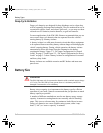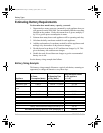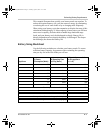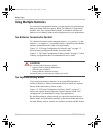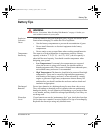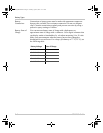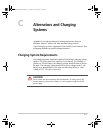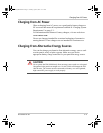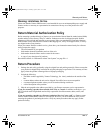
Alternators and Charging Systems
C–2 975-0263-01-01
Charging With an Engine Alternator
Read the following information to determine whether your vehicle’s
standard alternator will be adequate by itself, whether you should install
an alternator controller, or whether you need a high-output alternator.
Using a Standard Vehicle Alternator
A typical engine alternator (12 volts) may not be able to meet the
requirements outlined above if your system uses large capacity batteries.
Alternators are typically rated for the current they can deliver when they
are cold. When in use, alternators heat up, and their output current
capability drops by as much as 25 percent. Therefore, standard alternators
with ratings of 40 to 105 amps only deliver a maximum of 30 to 80 amps
in actual use and deliver even less as battery voltage rises. Many
alternators cannot produce more than 13.6 volts when they are hot. As a
result, a standard alternator may not be able to charge a large battery
quickly and completely.
Two solutions are to install an alternator controller or to install a high-
output alternator.
Using a Multi-stage Alternator Regulator
If your existing alternator charger is inadequate, you should consider
installing a multi-stage alternator regulator. This will maximize the
alternator’s charging rate without exceeding proper battery charge
voltages and ensure more rapid and complete charging.
Multi-stage alternator regulators, such as the Xantrex Alternator
Regulator (XAR), are available from marine product dealers.
Using a High-Output Alternator
If the alternator charging is still inadequate after installing the XAR,
heavy-duty alternators rated from 100 to 140 amps can replace standard
alternators and produce the higher current required to charge multiple
battery systems. They are available from RV and marine dealers, as well
as auto parts suppliers.
Xantrex_PRO1800.book Page 2 Tuesday, April 24, 2007 11:33 AM




